Afghan special forces soldier who risked her life working with British abandoned by UK
Exclusive: Soldier who fought with us against Taliban forced into hiding because UK won’t give her sanctuary – as British veterans demand we repay our debt of honour
Your support helps us to tell the story
From reproductive rights to climate change to Big Tech, The Independent is on the ground when the story is developing. Whether it's investigating the financials of Elon Musk's pro-Trump PAC or producing our latest documentary, 'The A Word', which shines a light on the American women fighting for reproductive rights, we know how important it is to parse out the facts from the messaging.
At such a critical moment in US history, we need reporters on the ground. Your donation allows us to keep sending journalists to speak to both sides of the story.
The Independent is trusted by Americans across the entire political spectrum. And unlike many other quality news outlets, we choose not to lock Americans out of our reporting and analysis with paywalls. We believe quality journalism should be available to everyone, paid for by those who can afford it.
Your support makes all the difference.A female Afghan special forces soldier who risked her life working in a unit that was set up, trained and paid for by the British armed forces is living in hiding after her application for sanctuary in the UK was rejected.
The mother of four was forced to flee Afghanistan after the West’s withdrawal and is now living illegally in Turkey in fear of deportation.
Zahab, whose name has been changed for her safety, applied for the Ministry of Defence’s (MoD) resettlement scheme in October 2021, designed for those who worked for or with British armed forces in Afghanistan, but was denied relocation.
Through speaking to her former colleagues, The Independent, in collaboration with investigative newsroom Lighthouse Reports, has established that Zahab was one of a select group of women who worked for Commando Force 333, an elite Afghan fighter unit that was set up and paid for by the British government.
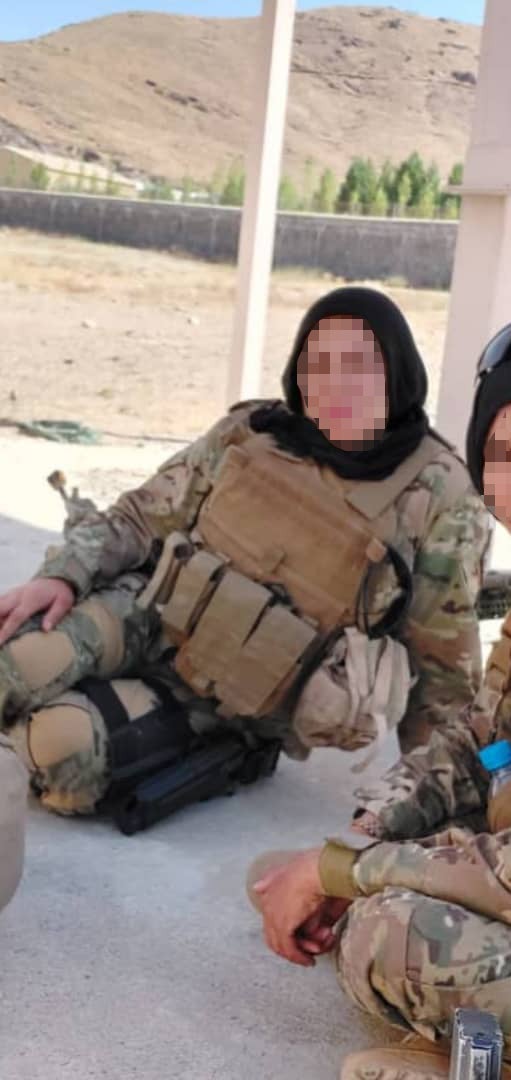
Zahab said her rejection felt like a betrayal by the British troops she had served alongside, adding that “despite all the promises made by the British, people were left behind”.
Colonel Simon Diggins, a former defence attache in Kabul, called on the government to look at her case, saying: “It’s really important, given the added vulnerability of women and the misogyny of the Taliban, that we look after them.”
“I’m really disappointed to hear that this woman has been turned down,” he added. “Not only did she work for us, but she will be extremely vulnerable if she is sent back to Afghanistan. I encourage the government to look quickly and sympathetically at this case.”
It comes after a joint investigation with Lighthouse Reports and Sky News earlier this month, which found that dozens of former members of CF333 – and its sister unit Afghan Territorial Force 444 (ATF444), have been beaten, tortured or killed by the Taliban since August 2021 after the UK failed to relocate them.
The MoD’s failure to help these Afghans, known as the Triples, who are documented as having served shoulder to shoulder with UK Special Forces (UKSF), is thought to be in breach of the department’s own Afghan relocations and assistance policy (Arap), the scheme designed to relocate eligible Afghans who served with the British.
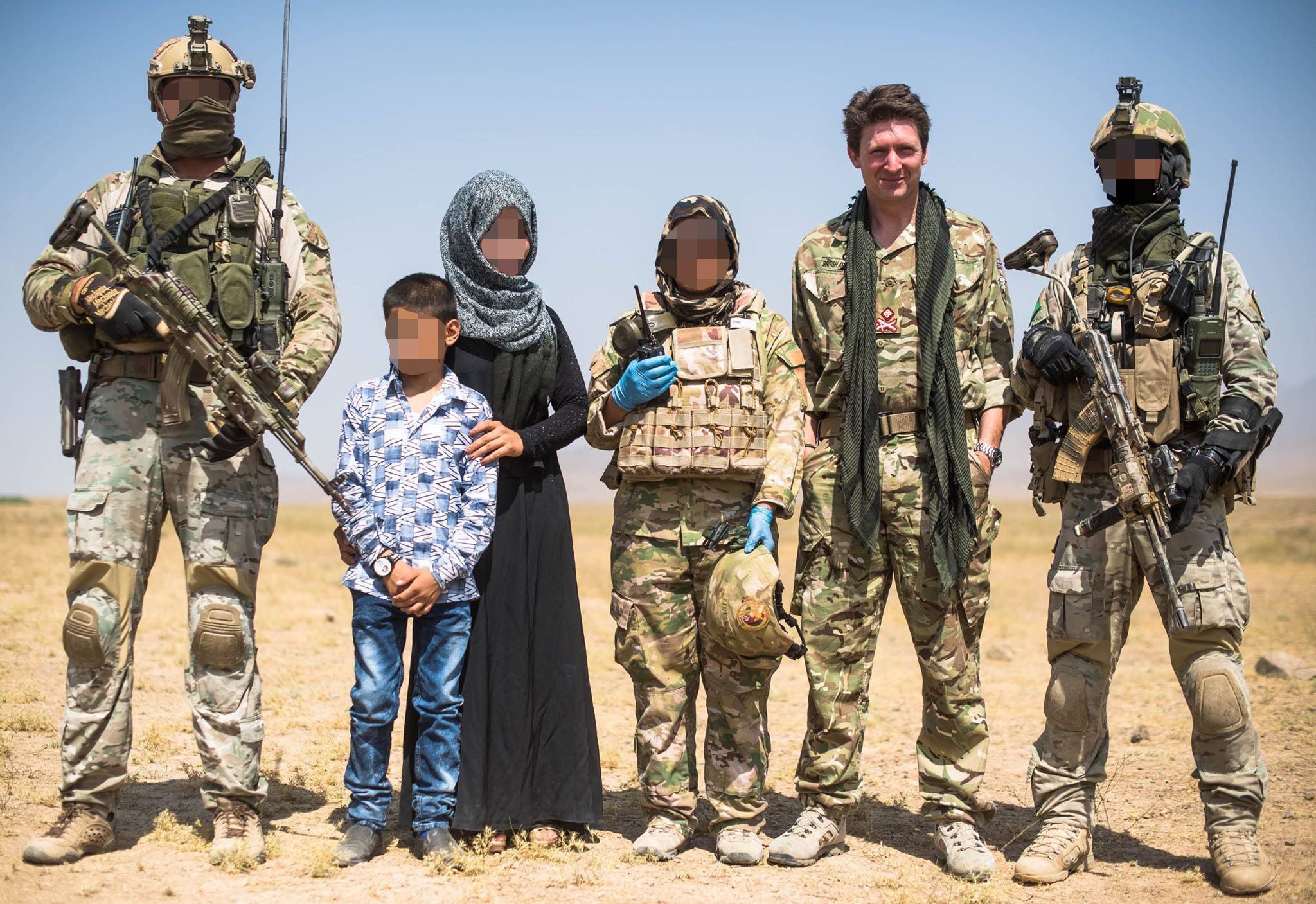
The investigation also revealed for the first time that the unit was paid by the British, and that, according to veterans who served with them, Afghan commandos in the CF333 unit “couldn’t work more hand in glove with the British”. They lived together on the same base in Logar Province, Afghanistan, and would go on missions together.
Veterans minister Johnny Mercer has said the government is aware of these rejections and has committed to “re-engaging” with the application process to “make sure there is integrity in that process”.
The MoD has said it assesses each application on its own merits against published criteria and has brought tens of thousands of people to safety.
Now, it can be revealed that among those serving in CF333 were around 15 women who are said to have played a crucial role in Britain’s fight against the Taliban. The unit was set up by British forces in 2002 to help the UK take out drug production networks funding the Taliban’s terrorism.
Major General Charlie Herbert, who worked alongside the Triples and was a senior Nato adviser in Afghanistan between 2017 and 2018, confirmed that 333 contained female members, in specialised combat roles.
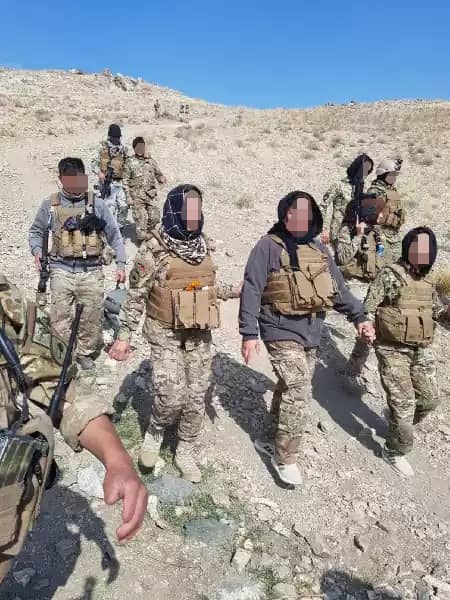
By August 2021, when the West withdrew from Afghanistan leaving it to Taliban rule, Zahab had spent two years fighting in the elite Afghan special forces unit. She began her career in the police force but soon rose through the ranks to join a handful of female fighters, hand-picked to help the British and Afghan armies track and capture Taliban and Isis leaders. Women were useful to the units who had to raid family houses and navigate the cultural sensitivities in Afghanistan, she said.
“Our role in the unit was very essential. Without a woman in the unit, even the main members couldn’t carry out operations because they wouldn’t be able to enter a house with women involved.”
“We were sent all over the country for operations. It was a very risky job. We would carry out an operation on the house of a Taliban member,” said Zahab, speaking from a small apartment in Turkey. “We were playing the same role as male members but on top of that, because of the cultural sensitivities, we had to do the body searches of all women and girls.”
When the rest of her unit headed to Kabul airport during the chaos of the Western evacuation, Zahab had to stay behind. A mother of four children, she felt she couldn’t bring them to face the crush at the airport gates as thousands of Afghans pleaded with American and UK forces to be evacuated.
Left without help and under the threat of retaliation by the Taliban, Zahab fled with her family and crossed the border illegally into Iran and then on to Turkey.
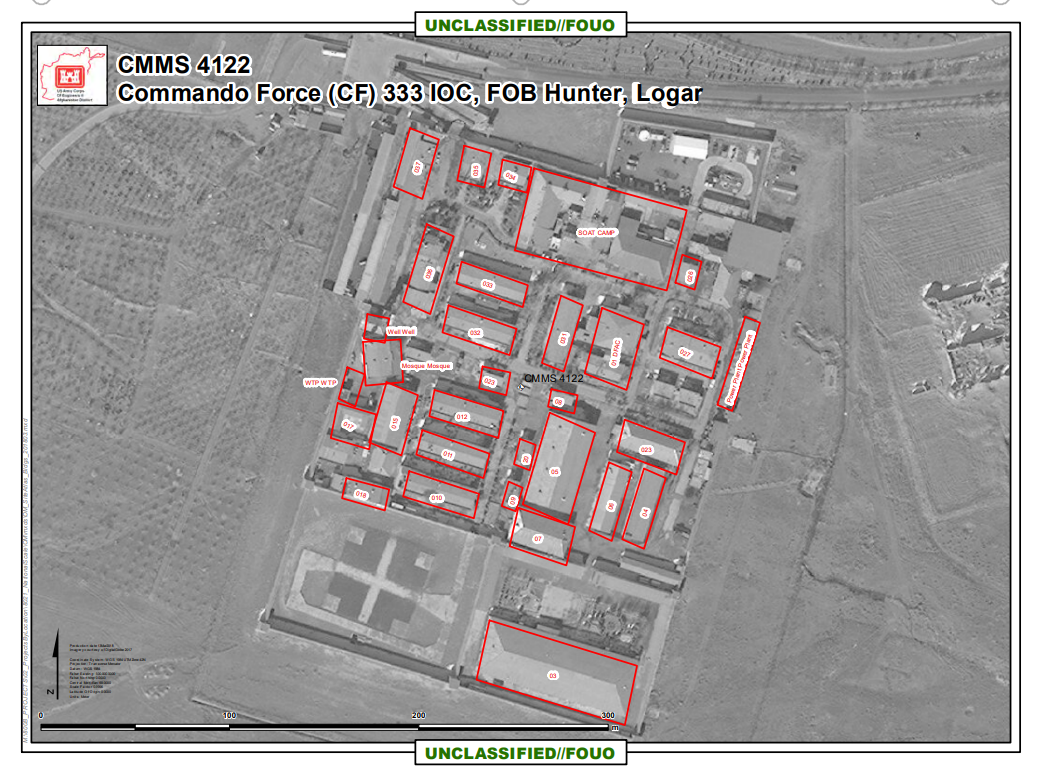
There she is “facing a lot of problems” but is terrified she will be deported back to Afghanistan to face an even worse fate. One of her daughters, who is aged 21, started working in the clothing industry to support the family but six months ago, she was arrested for working illegally as she couldn’t show documents, and detained for four months, Zahab said.
“She went through a lot of problems in the prison. She’s still struggling with mental health problems. They kept her for four months and they were trying to convince her to sign a deportation form. I was never able to visit the prison while she was there because I don’t have a work permit or documents myself. I was worried that if I went then I might be detained as well. We are living in constant fear of being arrested and deported,” she added.
Speaking of her other daughters, aged 18 and 14, Zahab said: “The uncertainty is the most difficult thing. They were going to school back home, now they have to work. If they don’t work, we will not have anything to eat, pay rent or anything.”
Zahab said she felt let down by those she worked alongside after her application to come to the UK was rejected. She said: “I feel like all their promises were false. They were just using us and then, when they didn’t need us any more, they just threw us away. Now they don’t need us, they don’t care.”
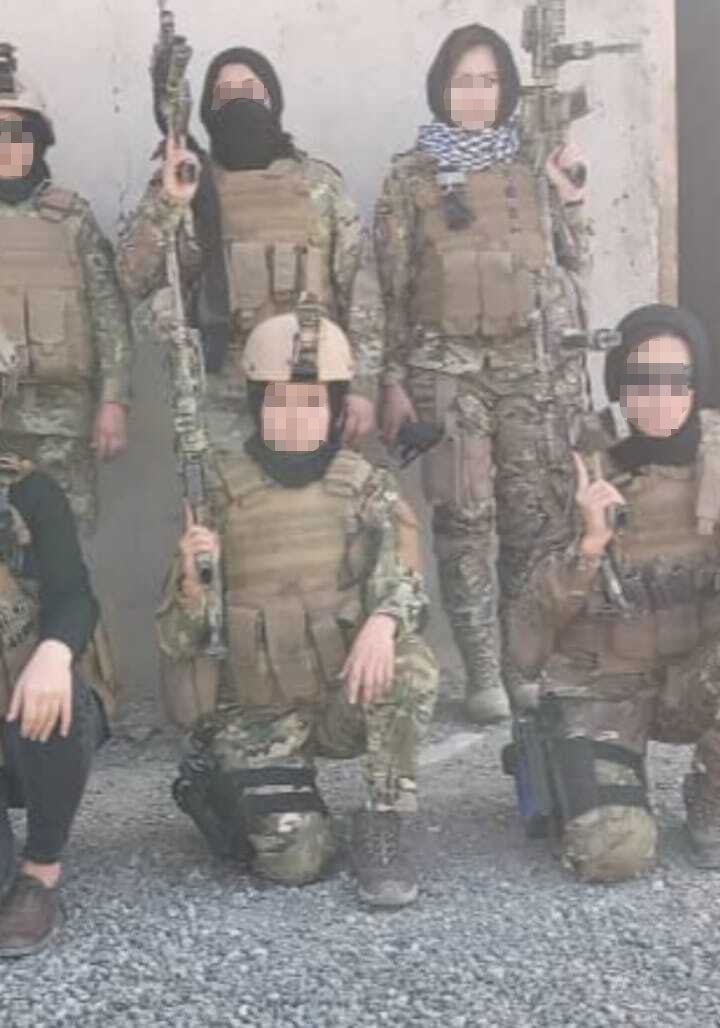
One of Zahab’s former Afghan commanders, who is now in the UK, said she was a “good” soldier who he could “trust” on operations, and that she and the other women in the unit – who he said lived in their own section on the same base as the men – did “essential” work.
“Sometimes the Taliban would give important documents or phones to women, and Afghan men can’t search Afghan women, so we needed women in the force. It was essential to have one or two women for every night raid. Sometimes, when we didn’t have women we had to cancel operations,” he said.
Another of Zahab’s colleagues in the 333 unit stressed the importance of soldiers like her. “If the women were not there then we would cancel the operations. The enemy would hide themselves among the women, so they were the ones who would differentiate them” he said.
An MoD spokesperson said: “The UK government has made an ambitious and generous commitment to help eligible people in Afghanistan. So far, we have brought around 24,600 people to safety, including thousands of people eligible for our Afghan schemes.
“Each Arap application is decided and scrutinised on its own merits against each criterion outlined in the specific Arap policy and the immigration rules, which are published online.”

Join our commenting forum
Join thought-provoking conversations, follow other Independent readers and see their replies
Comments